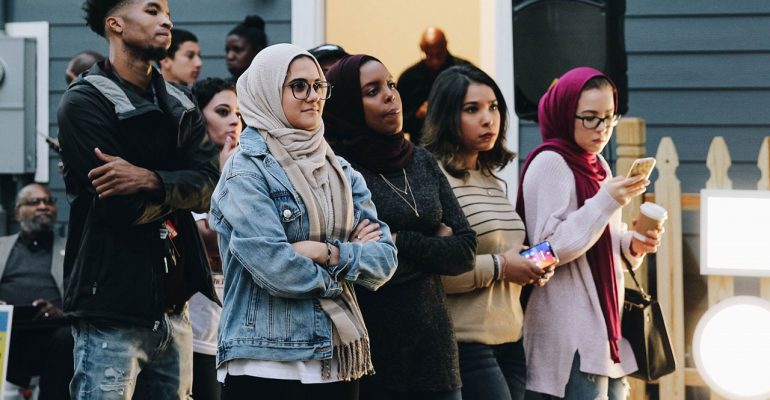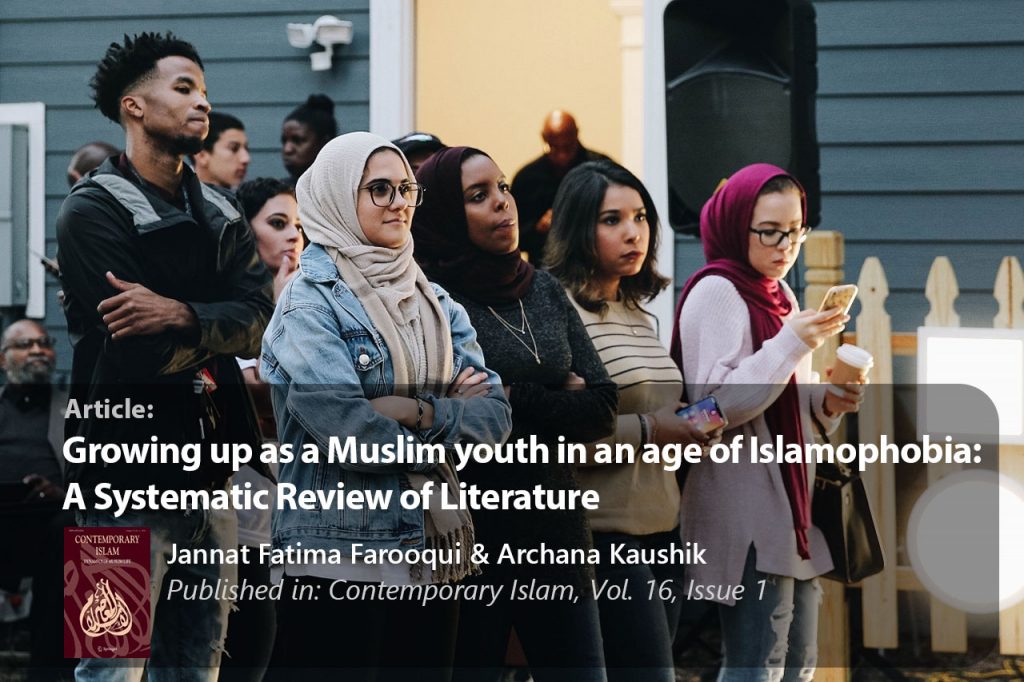Growing up as a Muslim Youth in an Age of Islamophobia: A Systematic Review of Literature
November 29, 2022 2024-03-17 23:04Growing up as a Muslim Youth in an Age of Islamophobia: A Systematic Review of Literature

Growing up as a Muslim Youth in an Age of Islamophobia: A Systematic Review of Literature
Article: “Growing up as a Muslim Youth in an Age of Islamophobia: A Systematic Review of Literature”
Authors: Jannat Fatima Farooqui and Archana Kaushik
Published in: Contemporary Islam, Vol. 16, Issue 1
Publisher: Springer Netherlands
Publication Date: March 5, 2022
In the West, Islam has been historically ‘othered’ as a religion and frequently linked to negative media representation, terrorism, and fundamentalism. As the aftermath of 9/11 witnessed a global rise in anti-Muslim rhetoric and action, there was a parallel increase in academic research on the Muslim community, including adults, youth, and children. In this paper, a systematic literature review was undertaken to explore how empirical studies over the last two decades have investigated experiences of growing up as young Muslims in an age of Islamophobia.
Based on objective inclusion and exclusion criteria, pertinent databases were searched for research with contextual, temporal, topical relevance. NVivo Plus software was used for content-coding, quantitative processing, and qualitative thematic analyses of data. A rigorous screening process resulted in the identification, compilation, and methodical review of 87 journal articles, between 2001 – 2021, on the topic ‘Islamophobia and Young Muslims.’
The descriptive analysis represented that there has been a substantial increase in empirical studies on young Muslims in the last five years, particularly in the field of educational studies. A majority of these studies covered experiences of adolescent Muslims, between 13-20 years, residing in western countries like U.K., U.S.A., and Australia. Qualitative research designs were frequently employed, with a sample size of >50 participants. Through the word-count frequency output of NVivo, four meaningful and recurrent themes of ‘Islamophobia’, ‘Identity’, ‘School’, and ‘Women’ were derived. Content analysis of these themes revealed that studies widely researched on diverse interpretations of Islamophobia in the lives of young Muslims, identity negotiation strategies adopted by Muslim minority youth, school-based religious bullying, and gendered facets of Islamophobia.
Research gaps showed a requirement for studies that capture heterogeneous narratives of Muslim youth in non-western countries and early childhood settings. Future research recommendations are of a unique child or youth-based theoretical conceptualization of Islamophobia, that particularly highlights youth perspectives of their own lived realities.
Source: Springer









